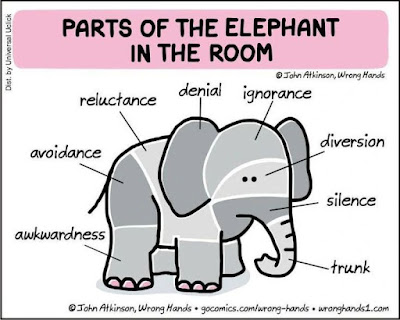 |
| Pic Credit - Canva |
Some moons ago, I was asked by Sheena Rajan from SR Global HR solutions if I would give a short talk on Strengths for an HR event she was organization.. The context - it was to a seminar titled "End of Jobs - Rethinking Work, Talent & the Future". Panel discussions and other speakers were also scheduled to cover different aspects of the topic.
I'm India's First Strengths Strategy Coach and have an organization called "The Strengths Decoder". We help my clients leverage their strengths for success at work and in life. Strengths has been consciously been a strong part of my personal and professional life since the past 10 years. So I readily agreed. While the title was interesting, the sub-title of the event intrigued me further, and after a short discussion with Sheena, I decided to speak on "Strengths-based Organizations". I don't really have a clip of my talk to share, so I'll get into a little more detail about the how and what of my presentation.
Why I chose that topic? Organizations face challenges in finding the right talent, engaging them, grooming them and retaining them. This is happening at all levels. With AI being used to replace jobs in every function, is it really the end of jobs? What then, is to become of the organization and it's people. Those left behind will definitely be apprehensive (if not unhappy) about the future. When a person is unhappy at work, particularly if their strengths are not leveraged in their role, they will not be able to deliver optimum results. In fact, no amount of training can improve this performance. This will negatively impact the growth and existence of the organization, if it doesn't act quickly.
Peter Drucker said "Most people think they know what they are good at. They are usually wrong. More often, people know what they are not good at... and yet, a person can perform only from strengths."
If an organization focuses on leveraging the strengths of its employees to achieve it's goals, it will have happier engaged employees who willingly give of their best, are more productive and are likely to stay longer since they see a strong alignment between their strengths (competencies) and the organizations goals / vision. Of course, leadership buy-in is a must at all levels, and especially at the top.
Why are Strengths-based organizations important? An organization that works on a foundation of strengths tends to be solution - oriented. The employees are happier since they are getting to do what they enjoy doing. We know that happy and engaged employees are a joy to work with, and that improves collaboration along with ensuring that conflicts get resolved more quickly than otherwise. This impacts the Organization Culture and Employer Brand positively. Word of this work culture and brand spreads, in the same way as it happens for organizations that have a toxic culture. This turns the organization that leverages its people's strength into a Key Talent Attractor.
What's in it for the individual employee (at any level)? Knowing your strengths (what you're good at) and a clear awareness of your weaknesses (which activities drain you), along with knowing your values, will give you opportunities to explore and reject. Hiring a Strengths-Strategy Coach helps a lot here.
Some stats that I shared during my presentation: Gallup Research has found that
individuals and teams that lead with their strengths are:
- 6 times more engaged
- 3 times more likely to
report having excellent quality of life
- 8.9% more profitable
It was a pleasure to meet old friends like Nikhil Gadodia and Milind Rane at this event and share the stage with HR stalwarts like Dr. Brillian S.K., Gauri Das, Govind Sharma and others. It was great to make new friends too. Here are some pics of the action:
 |
| Sheena Rajan delivering the Keynote Speech |
 |
| With Dr Brillian S.K., Gauri Das and Milind Rane |
 |
| Panel members being felicitated by Sheena Rajan |
Curious about finding out and leveraging yours and your employee's strengths? Step 1 - Get management buy-in for this systemic intervention. This is extremely important since theis impact will be seen after a year or so.
Step 2 - Use a validated psychometric assessment such as CliftonStrengths, PRISM Brainmapping Inventory, OPQ . Hire a Strengths-based Consultant and Coach (hint: me - call +919820155778) to work with you on this.
Step 3 - Be ready to communicate this intervention, and reconfigure your organization processes to incorporate strengths as a philosophy.
Do get in touch with me on +919820155778 or ryanbbarretto@hotmail.com to understand how knowing and applying one's strengths can help one's career and the organization.



.jpeg)



.jpeg)


.jpeg)


.jpeg)

















